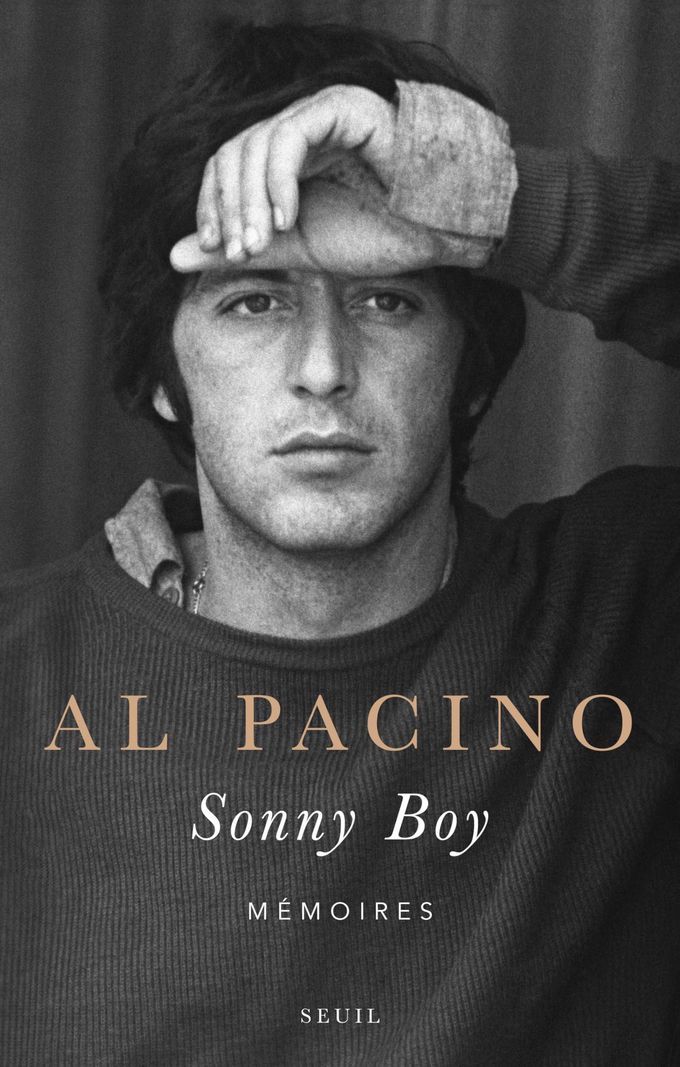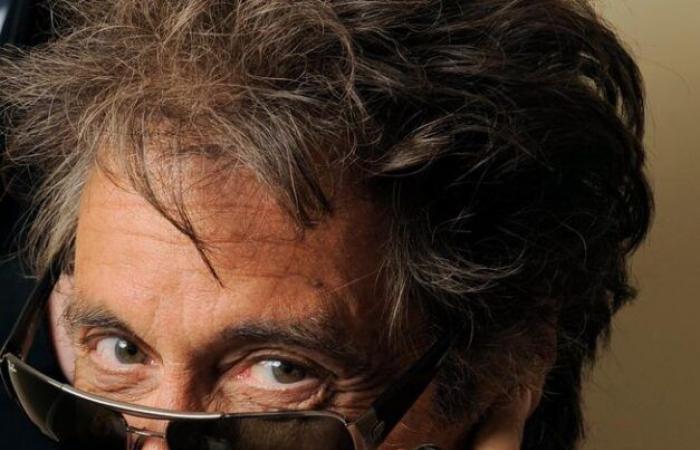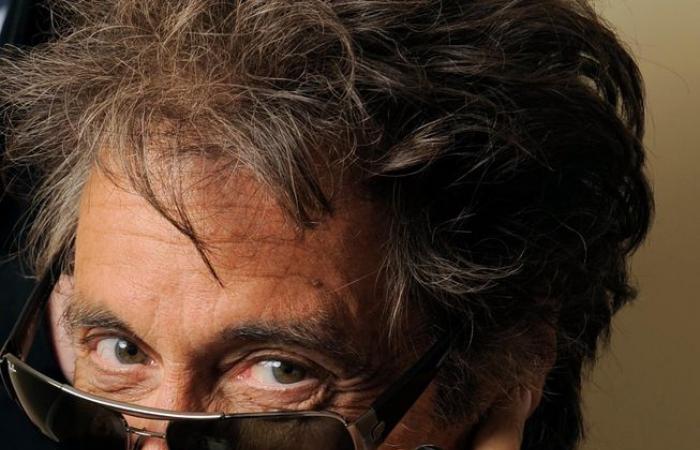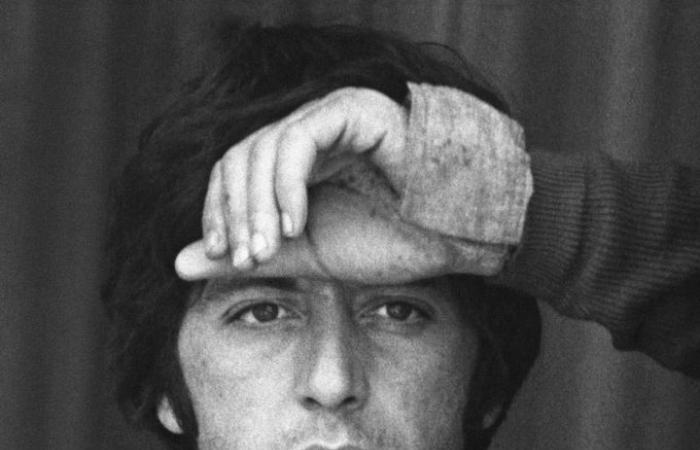Autobiography of a Celebrity –
Al Pacino tells you everything, or almost…
The “Godfather” and “Scarface” actor titled his memoir “Sonny Boy,” after the nickname his mother gave him.
Published today at 12:18 p.m.
Al Pacino, in 2010, the year he turned 70.
AP/Chris Pizzello
Subscribe now and enjoy the audio playback feature.
BotTalk
- Al Pacino publishes his memoirs, highlighting his New York childhood.
- The actor discusses his addiction to alcohol and refutes his reputation as a cocaine addict.
- Pacino recounts his experience on the set of “The Godfather”, highlighting a tasty anecdote.
Even if Al Pacino has still appeared in a few good films in recent years, including Tarantino’s “Once Upon a Time… in Hollywood” in 2019, the game of fame has long been made for the actor of Sicilian origin. In the collective consciousness, his performances in Coppola’s “Godfather” trilogy and in De Palma’s “Scarface” define him entirely.
In his memoirs, which have just been published in French, the 84-year-old New Yorker from Beverly Hills is aware of this and does not complain about it. His Hollywood reputation as a cocaine addict seems unfair to him – remember this scene where Tony Montana sticks his nose in a mountain of powder – when he instead had to fight against his addiction to alcohol…
His memories, titled “Sonny Boy”, the nickname given to him by his mother, who died when he was 22, prove refreshing in more than one way. Firstly by the tone adopted, bordering on orality, which gives the impression that it was indeed Pacino who wrote this incursion into his past.
The actor’s frankness
Then, by the relative frankness expressed there. The actor probably lies by omission but when he addresses certain subjects, he does not always give the best role, particularly in his relationships with women to name only the actresses Jill Clayburgh and Tuesday Weld. He does not dwell too much on the Swiss Marthe Keller, whom he assures of his eternal friendship. On the other hand, he hardly comments on his last fatherhood, last year, at the age of 83…
If he tells, for example, how he almost got thrown out of the filming of the first “Godfather”, he doesn’t add up the little stories from filming either. But this anecdote is amusing, especially for those who have recently rewatched Coppola’s classic.
In his role as Michael Corleone, Al Pacino thought it necessary to create a contrast between the scion before the mafia war and the one who reveals himself as a ruthless killer once hostilities begin. He therefore played the first scenes with a somewhat subdued gentleness, which is verified on screen, but which was neither to the taste of the producers nor the filmmaker. It took the filming of the murder scene in the restaurant for everyone to be reassured: the Italian-American could be this crazy dog that everyone was hoping for.
Explosive energy
Most actors have one main characteristic, one trait that sets them apart, in their early stages at least, although some settle comfortably into it for the rest of their career. Al Pacino was energy, this explosive ability to suddenly radiate. And this revelation did not come to him in the cinema. In his memoirs, he focuses on two worlds away from the seventh art.
First, the streets of his childhood, in the South Bronx of New York, where he was raised by his mother and his grandparents, but which he no longer dares to visit for fear of no longer recognizing anything. Reminiscences among the strongest of those that the actor puts on paper. The adventures on roofs and bridges, the games of “ringolevio”, this game of cops and thieves of these New York kids from poor families – most of his friends from the time died with a syringe in their arm .
From the streets to the boards
Then there is the world of theater. We can forget it, but Al Pacino doesn’t just come from the stage. He always went back there. His first major distinction, after that of “student most likely to succeed” won in middle school, was an Obie Award, in 1968 for his vehement role in “The Indian Wants the Bronx”. His discovery of Chekhov but especially of Shakespeare marked him for life. He played the role of Richard III several times before producing and directing this fascinating and experimental film “Looking For Richard” in 1996, a project about which he still speaks with pride. A “King Lear” would be in the post-production phase…
By his own admission, the streets and the stage ultimately define Al Pacino better than most of his film appearances, even though he always took his craft seriously and attempted to improve the sometimes mediocre productions in which he was cast. . Between the lines, we feel that he is not fooled by the success of “The Godfather” and “Scarface”, films which he praises only moderately, except to salute the performance of Marlon Brando in the first “Coppolian” episode.
If he passes like a cat on hot coals on Friedkin’s “Cruising” (“The Hunt”, 1980), a foray into the gay world, he stops at quite a length on Lumet’s “A Dog’s Afternoon” (1975). , perhaps his best film, and on “Donnie Brasco” (1997), with an interesting role as an aging mafioso where we can see a satirical commentary on his career as a “shining gangster”.
His endearing memoirs, a tribute to the memory of his mother, in any case make you want to delve back into his filmography and arouse some regrets for all those who did not have the chance to see him perform on a theater stage.
«Sonny Boy», Al Pacino, Ed. Seuil, 384 p.

Did you find an error? Please report it to us.
2 comments








